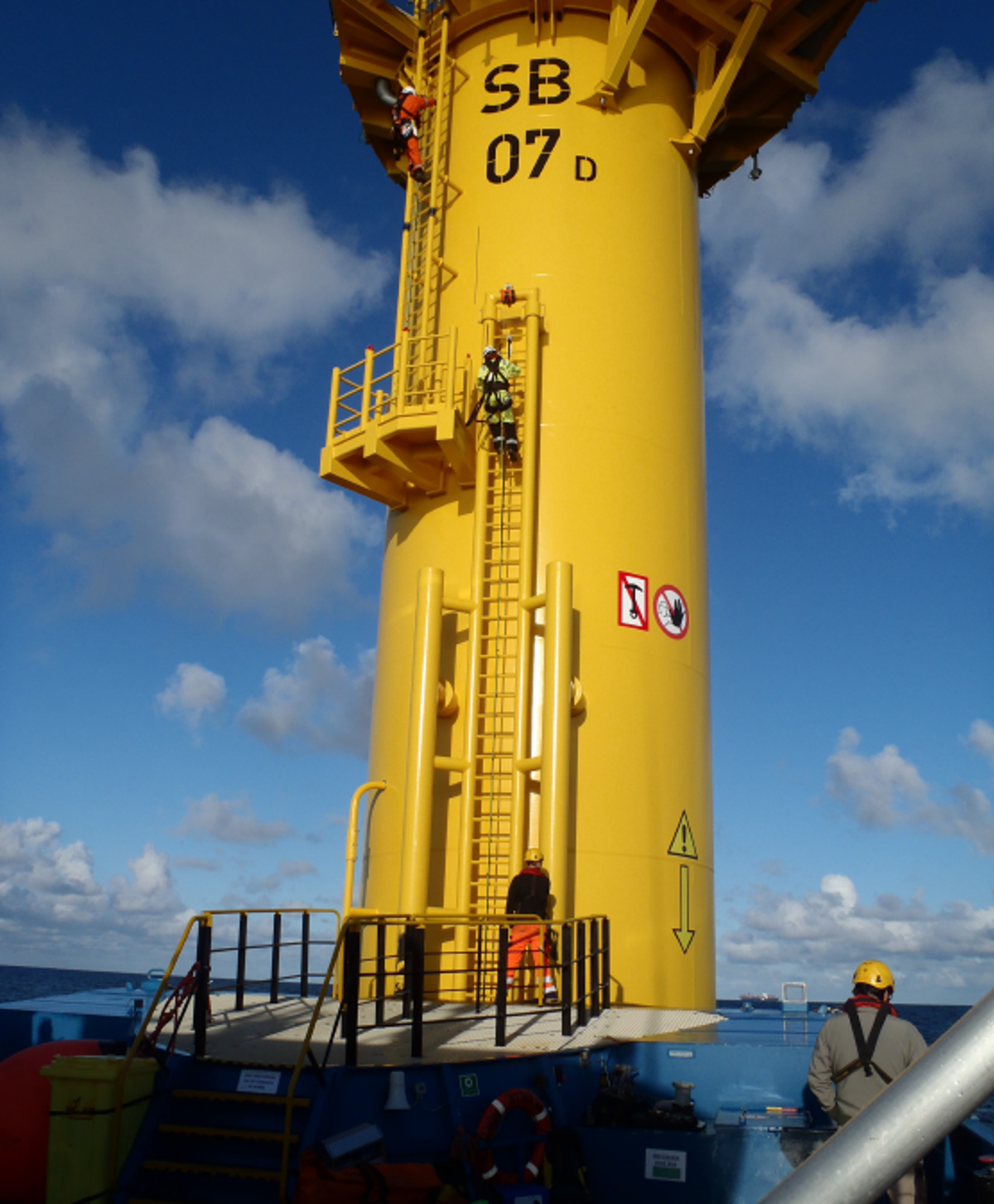Near-miss during transfer operations from a crew transfer vessel (CTV) to a turbine tower
- Safety Flash
- Published on 23 November 2015
- Generated on 16 February 2026
- IMCA SF 19/15
- 2 minute read
Jump to:
A member has reported a near miss incident during transfer operations between an offshore renewables industry CTV and a turbine tower.
What happened?
The incident occurred during the pick up of crew from a tower – a crew transfer vessel was pushing on to the tower and started transferring crew. The weather was workable but there was a long high swell which was considered manageable.
When the high swell came the transfer was stopped, and restarted when safe to do so. The swell caused the vessel to go up and down for five rungs on the ladder. As it did so, a person was briefly left suspended by his fall arrest equipment when the boat moved suddenly under the influence of the swell. There were no injuries.

After pushing on with maximum engine power and monitoring the swell, the first person was asked to come down. The person was transferred to the crew vessel with his fall arrester still attached to the tower. This person stepped back too fast and the inertia reel mechanism in his fall arrester temporarily locked. The deckhand tried to help this person with unhooking from the fall arrester.
Unexpectedly the swell came in and the vessel moved down, causing the person to be lifted into the air and temporarily suspended by his fall arrester. As the deckhand was holding on tight to the fall arrest equipment, he too was lifted off his feet. When the vessel came up again the deckhand jumped back on deck, while the person remained on the ladder. The vessel moved up and down but no-one was hurt as the fender of the boat and boat landing were designed to leave space between ladder and persons.
Further personnel transferring from that tower to the CTV were asked to disconnect the fall arresters at the last five rungs of the ladder. All further transfers took place safely.
It is be noted that there were around one hundred (100) personnel transfers conducted safely on that day and that this unexpected swell occurred only once.
The fall arrest equipment was checked and found to be in good condition. The root causes of the incident were found to be incorrect work procedures, and insufficient awareness.
Related safety flashes
-
IMCA SF 02/15
5 February 2015
-
IMCA SF 06/14
16 April 2014
-
IMCA SF 02/10
8 April 2010
IMCA Safety Flashes summarise key safety matters and incidents, allowing lessons to be more easily learnt for the benefit of the entire offshore industry.
The effectiveness of the IMCA Safety Flash system depends on the industry sharing information and so avoiding repeat incidents. Incidents are classified according to IOGP's Life Saving Rules.
All information is anonymised or sanitised, as appropriate, and warnings for graphic content included where possible.
IMCA makes every effort to ensure both the accuracy and reliability of the information shared, but is not be liable for any guidance and/or recommendation and/or statement herein contained.
The information contained in this document does not fulfil or replace any individual's or Member's legal, regulatory or other duties or obligations in respect of their operations. Individuals and Members remain solely responsible for the safe, lawful and proper conduct of their operations.
Share your safety incidents with IMCA online. Sign-up to receive Safety Flashes straight to your email.